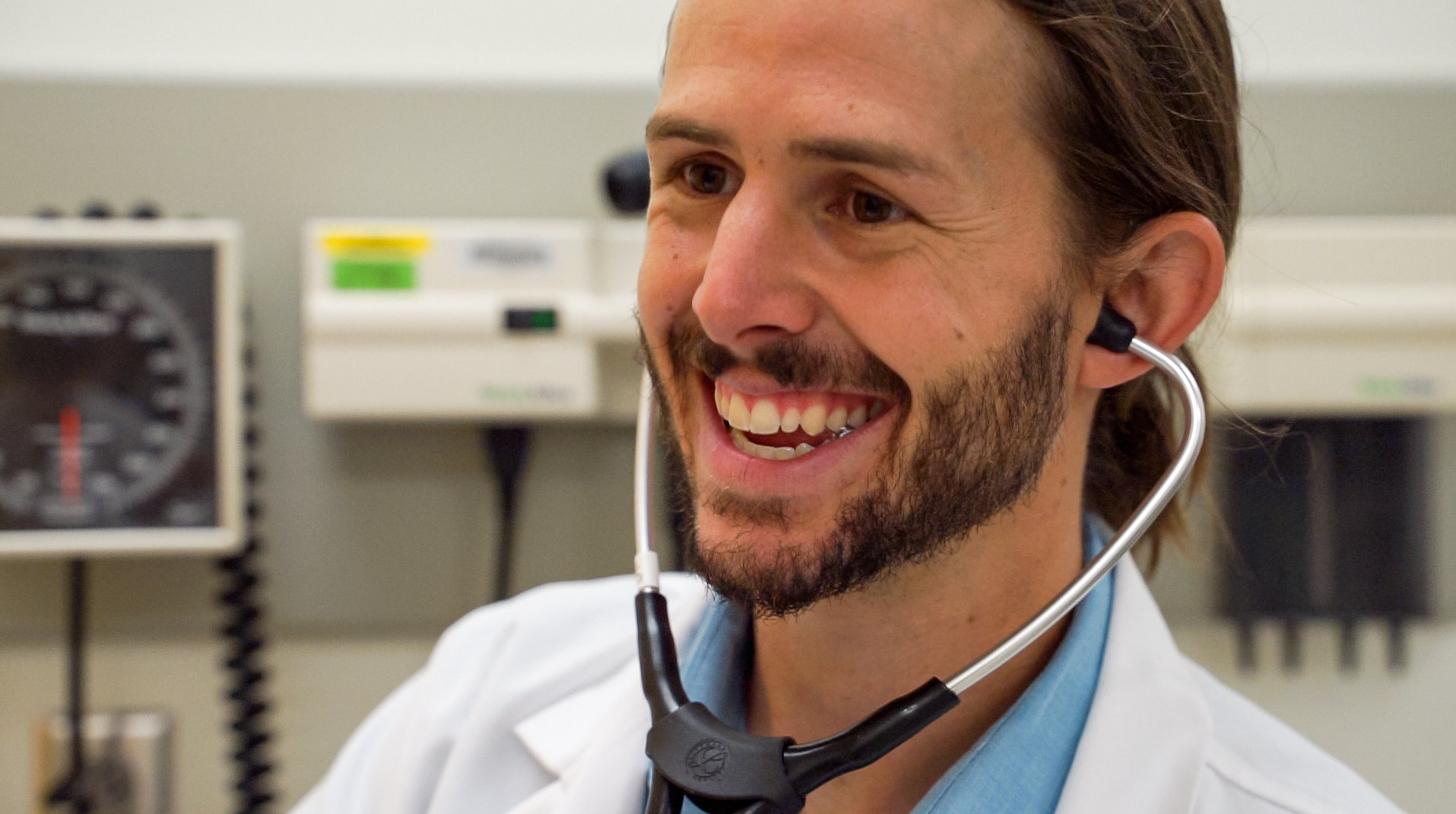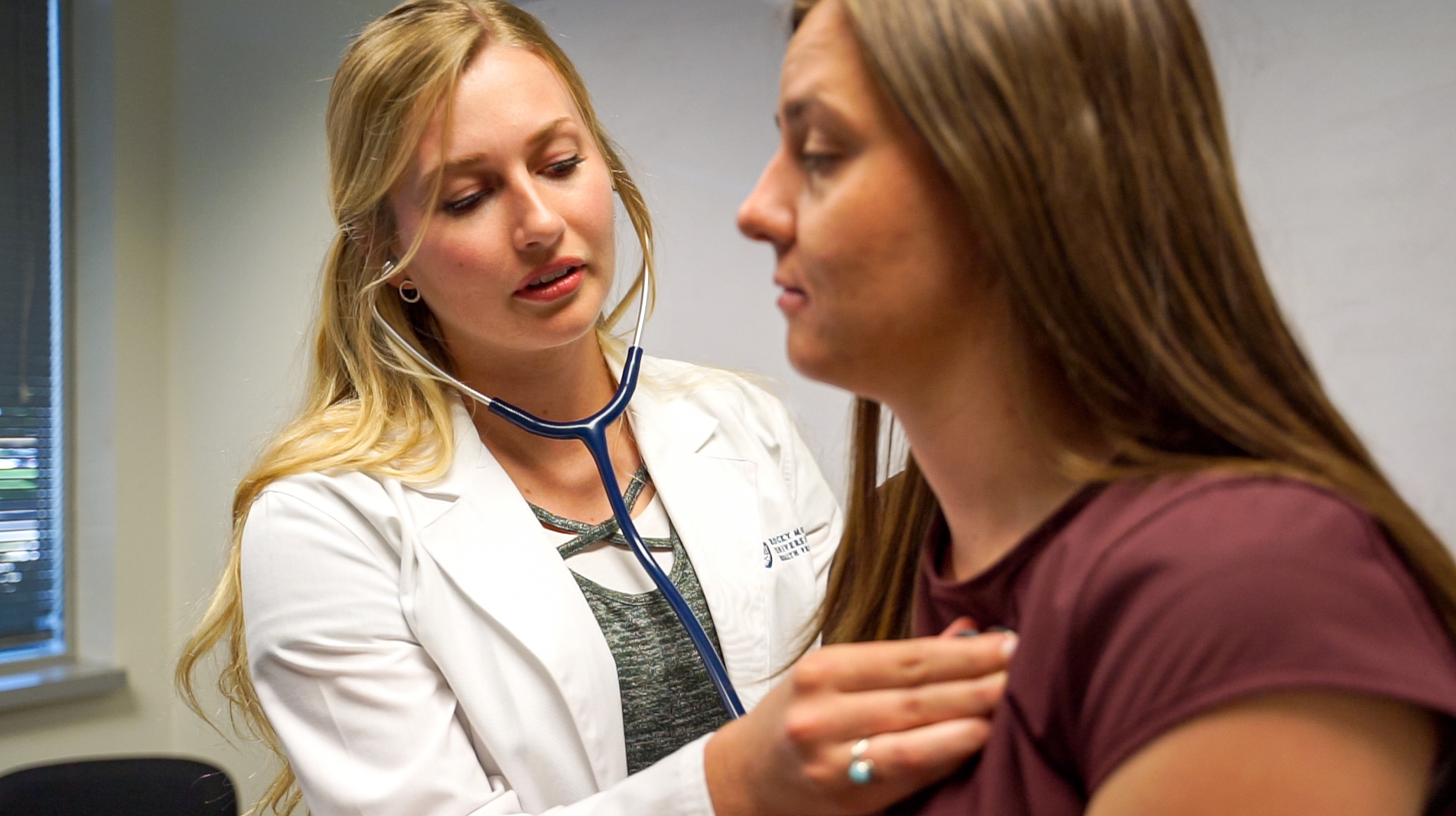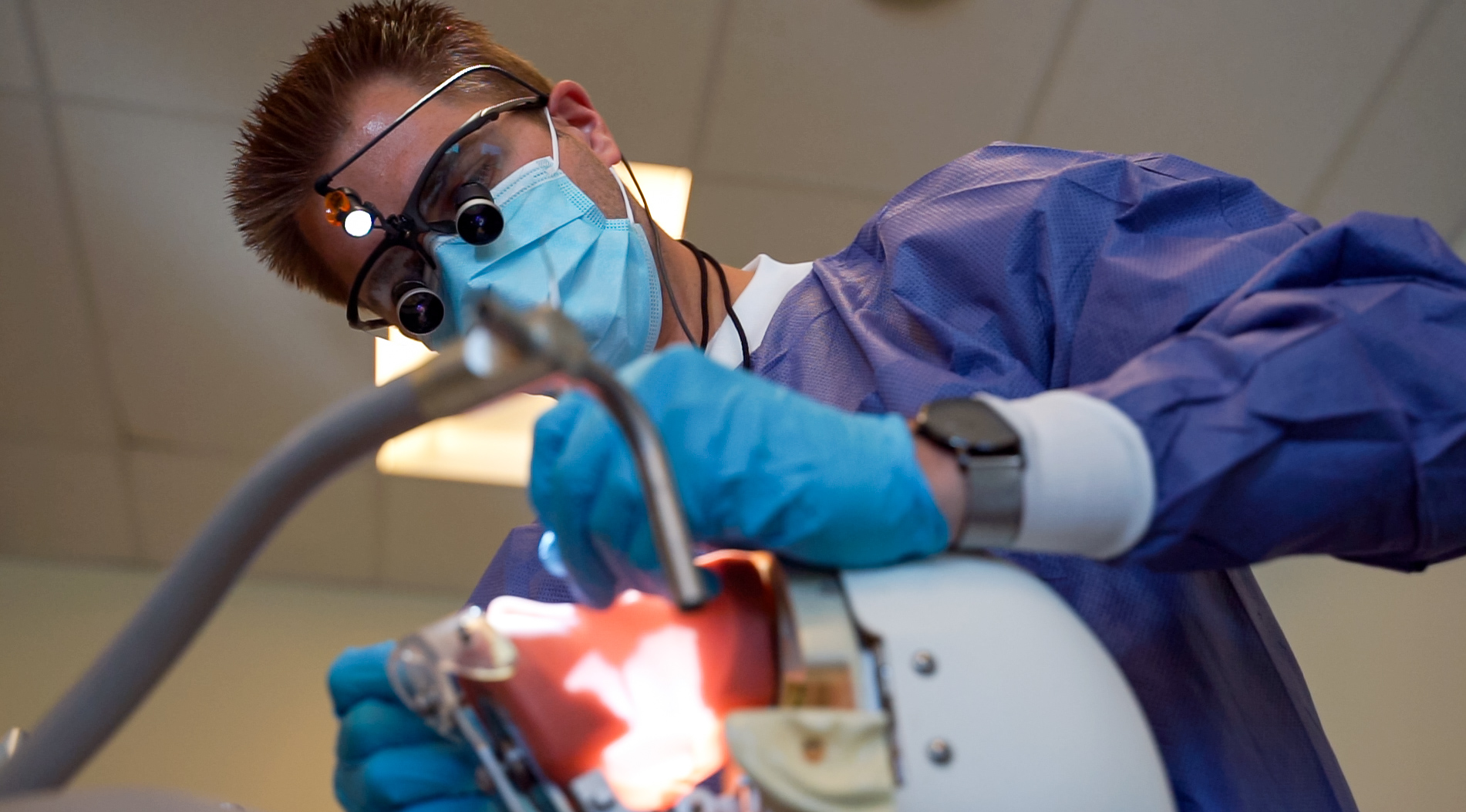by Bronson Teichert

Many alumni of Utah State University’s nutrition science program are pursuing medical careers and finding they stand out among the students competing for the limited number of slots available annually at medical and dental schools. Helping people, creating impact, and changing the world are common goals of aspiring medical professionals. But the journey to making a difference in peoples’ health begins before medical school and sometimes even before a bachelor’s degree.
USU alum Daniel Brandley is currently studying to become a family practice doctor at the University of Utah School of Medicine. He always wanted to become a doctor, and finding a university for his undergraduate degree with low tuition rates and quality education was important. After trying USU for a semester, Brandley took an introduction to nutrition class from Professor Heidi Wengreen in the Nutrition, Dietetics, and Food Sciences Department.
“I loved that class,” Brandley said. “It really revolutionized my own diet. Dr. Wengreen pulled me aside after class and said, ‘I heard you’re pre-med. There's this really cool degree in nutrition science and you should check it out.’”
When Brandley learned that nutrition science fulfilled all the prerequisites for medical school, on top of available scholarships, leadership development, and research opportunities for students, he made up his mind.
“Nutrition science is built for pre-health professionals,” Brandley said. “It's built for dental students, PA (physician assistant) students, and doctors. The degree is set up to get your prerequisites so that you can take your entrance exam and get into medical school while also getting a nutrition background. They really tailored it, which is perfect.”
Most pre-med students earn undergraduate degrees in biology or chemistry, but when applying for medical school, students need tools in their belt that will give them an edge over their competition.
“Being from the College of Agriculture and Applied Sciences and taking a nutrition approach, I can help people make long-term lifestyle changes,” Brandley said. “I want to be the kind of doctor who works with patients and use my nutrition background to say, ‘Hey, how can we help you prevent disease, rather than just giving you pills to fix it?’”
Brandley said there were close to 4,000 applicants to the University of Utah medical school the year that he applied. Having a slightly unusual bachelor’s degree in nutrition, leadership experience as a CAAS ambassador, and having worked closely with professors, Brandley is now one of the 120 students accepted in the year he applied.
“I’ve realized the value of having a good instructor,” Brandley said. “Someone who is ready to teach you and is passionate about the subject. I found that with every instructor in the College of Agriculture and Applied Sciences. They love their jobs, they’re doing research, they’re teaching, they’re out practicing, and that was huge.”
Applying for dental school wasn’t much different for USU nutrition alum Kolton Astle, now in his third year at the Roseman University College of Dental Medicine.
“When I got the invitation to come and be one of the people that interviewed, they said that out of 2,500 applicants, they were interviewing one in six,” Astle said. “From there, our class size is about 82. It was very competitive to get into, but I was able to get a bachelor’s degree and the three minors because the nutrition program had everything I needed.”
Astle said his original plan was to major in biology, but one of his friends told him about the nutrition pathway to the medical field and that more than a half a million dollars in scholarships is awarded to CAAS students every year. (A number that increased to over $700,000 in 2019-2020)



“I think it really prepared me to be here because of nutrition science,” Astle said. “I’m dealing with the oral cavity as a dentist and that is just the entrance to health in my opinion.”
For USU alumna Amber Astle, nutrition was her first interest, so the nutrition science program was an obvious fit. Now a physician’s assistant student at Rocky Mountain University, she said the teachers and classes at USU taught her how to study and be a good student, but also gave her a foundation for future opportunities.
“It’s where I learned that I had an interest in pursuing a degree to become a physician’s assistant,” Amber said. “It really helped me to know what it takes to get to the medical field.”
Amber agreed that a nutrition background helps applicants become well-rounded, but her education at USU prepared her with tools to help future patients, create impact, and maybe even change the world.
“You're not doing yourself any favors by taking the traditional route to medical school unless that's something that really speaks to you,” Amber said. “If you say, ‘I picked nutrition, because that's something that I really have a passion for and that I want to pursue as part of the field I want to go into,’ that lets them (admissions board members) know that you're committed to what you're doing and it helps you in your future practice.”

